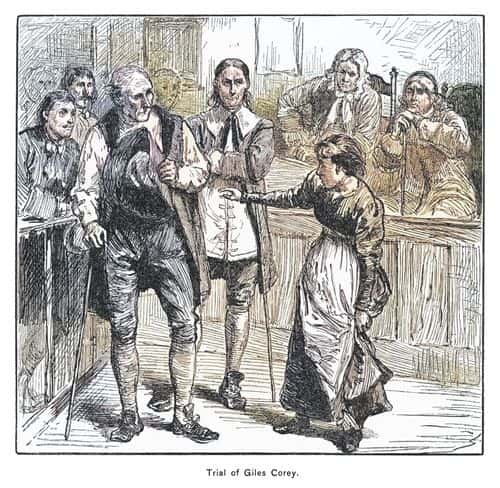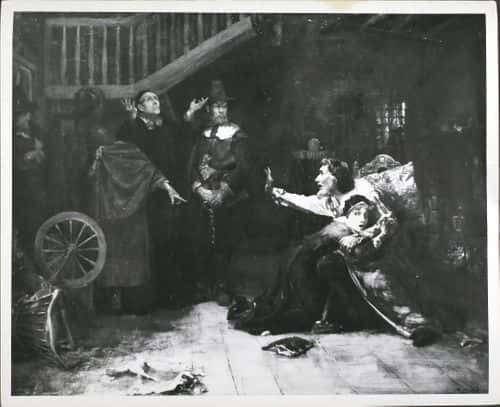Connecticut mulls exonerating those accused of witchcraft more than 375 years after Salem Witch Trials

HARTFORD, CONNECTICUT: Connecticut lawmakers are reportedly considering granting posthumous exonerations to women and men, who were executed in the state for witchcraft, decades before the infamous Salem Witch Trials. Connecticut State Rep Jane Garibay proposed the exonerations on Tuesday, January 31, after receiving a slew of letters from the eighth and ninth-generation relatives of the people accused of being witches.
The proposed exonerations come more than 375 years after 11 Connecticut citizens, nine women and two men, were executed by the colony of Connecticut on suspicion of practicing witchcraft between 1647 and 1662, a dark period where almost 40 people faced trials for witchcraft, according to Fox news. "They're talking about how this has followed their families from generation to generation and that they would love for someone just to say, 'Hey, this was wrong,'" Garibay said of the letters he received from relatives of the deceased, adding, "And to me, that's an easy thing to do if it gives people peace."
READ MORE
Connecticut school district makes teachers think of race while brushing teeth, shower
Garibay’s proposal came as an increasing number of residents demanded the exonerations of the hundreds executed during the 17th-century witch trials. Calls to have the centuries-old convictions overturned became louder in the state after several other states and nations worked to atone for the unjust persecutions that took place at the time.

Scotland's Prime Minister issued formal apology to 4,000 people accused of witchcraft
In 2022, Scotland's Prime Minister Nicola Sturgeon formally apologized to the estimated 4,000 Scots, who were accused of witchcraft up until 1736. Of the accused, more than 2,500 were killed by the state. Before the apology, the state parliament even called for posthumously pardoning them. Similarly, Massachusetts lawmakers exonerated Elizabeth Johnson Jr, who was convicted of witchcraft in 1693 and given a death sentence during the height of the Salem Witch Trials, according to Daily Mail.
The exoneration of Johnson, who was reportedly the last accused Salem witch, came following a three-year-long battle by Massachusetts teacher Carrie LaPierre and her eighth-grade class to clear the woman's name. Aided by a senior state legislator, the initiative was ultimately successful, and officials decided to pardon Johnson, who was a poor single mother with a possible mental illness. She was initially forced to plead guilty to the conviction but was eventually spared. The 20-year-old nearly became one of the 20 people who were executed during the trials in which more than 200 Massachusetts citizens were unjustly tried for alleged witchcraft.
When were the witch trials held in Connecticut?
Now that all of the "witches" in Massachusetts have been pardoned, Connecticut is apparently ready to follow suit. The state’s infamous witch trials were held in the mid-to-late 1600s when witchcraft was considered a capital offense in each of the New England colonies. As per the earliest laws in the colony of Connecticut, “Any man or women (to) bee a Witch, that is, hath or consulteth with a familiar spirit, they shall be put to death.”
According to Daily Mail, many historians believe that the witch trials were initially prompted because of fear and anxiety among religiously strict English settlers. It was also said that the allegations of witchcraft often began due to some controversial arguments, the death of a child or a cow, or because of butter that could not be churned. Historians pointed out that many of the people, who were executed as witches, were poor, single mothers or old women who could not fend for themslves.

In one such case, Mary Johnson, a poor servant from Wethersfield, Connecticut, who was accused of "familiarity with the Devil" was executed by the state. She was brutally tortured by a local minister who whipped her until she finally admitted to being a witch and to "uncleanness with men." She was eventually hanged to death after she gave birth to the child of a man she was not married to.
"It's important to right the wrongs of the past, so we learn from them and move on and not repeat those mistakes," said podcast host Joshua Hutchinson, who traced his ancestry to accused witches in Salem. As per Daily Mail, he also noted that events like these still happened and people still get killed in multiple countries because they were suspected of being witches or sorcerers.
Reflecting on the Connecticut state’s proposed guidance, state Sen Saud Anwar also proposed an exoneration bill while admitting that some people may laugh at the idea of the Legislature taking time to clear the records of accused witches. "His wish was that if there was a way to give some kind of closure to the families, that would be one way for him to be able to say that he has done his share, even though his ancestors may have not done the right thing," Anwar reportedly said.










